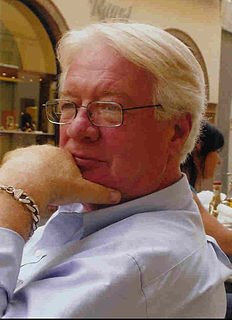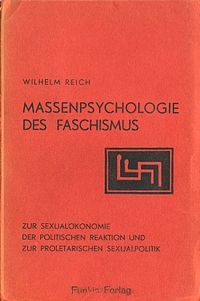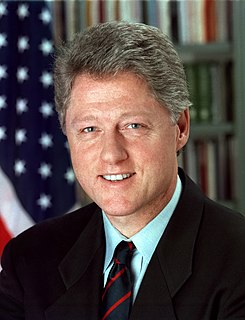A two-party system is a party system where two major political parties dominate the government. One of the two parties typically holds a majority in the legislature and is usually referred to as the majority or governing party while the other is the minority or opposition party. Around the world, the term has different senses. For example, in the United States, Jamaica, and Malta, the sense of two-party system describes an arrangement in which all or nearly all elected officials belong to one of the only two major parties, and third parties rarely win any seats in the legislature. In such arrangements, two-party systems are thought to result from various factors like winner-takes-all election rules. In such systems, while chances for third-party candidates winning election to major national office are remote, it is possible for groups within the larger parties, or in opposition to one or both of them, to exert influence on the two major parties. In contrast, in the United Kingdom and Australia and in other parliamentary systems and elsewhere, the term two-party system is sometimes used to indicate an arrangement in which two major parties dominate elections but in which there are viable third parties which do win seats in the legislature, and in which the two major parties exert proportionately greater influence than their percentage of votes would suggest.

Moral Politics: How Liberals and Conservatives Think is a 1996 book by cognitive linguist George Lakoff. It argues that conservatives and liberals hold two different conceptual models of morality. Conservatives have a strict father model in which people are made good through self-discipline and hard work, everyone is taken care of by taking care of themselves. Liberals have a nurturant parent model in which everyone is taken care of by helping each other.
Radical centrism is a political ideology that arose in the Western nations in the late 20th century. At first it was defined in a variety of ways, but at the beginning of the 21st century a number of political science texts gave it a more developed cast.

The Rise and Fall of the Third Reich: A History of Nazi Germany is a book by William L. Shirer chronicling the rise and fall of Nazi Germany from the birth of Adolf Hitler in 1889 to the end of World War II in 1945. It was first published in 1960, by Simon & Schuster in the United States. It was a bestseller in both the United States and Europe, and a critical success outside Germany; in Germany, criticism of the book stimulated sales. The book was feted by journalists, as reflected by its receipt of the National Book Award for non-fiction,
but the reception from academic historians was mixed.
Joel Feinberg was an American political and legal philosopher. He is known for his work in the fields of ethics, action theory, philosophy of law, and political philosophy as well as individual rights and the authority of the state. Feinberg was one of the most influential figures in American jurisprudence of the last fifty years.
Tim Francis LaHaye was an American evangelical Protestant minister, speaker, author and conservative activist. He wrote more than 85 books, both fiction and non-fiction, and is best known for the Left Behind series of apocalyptic fiction, which he co-authored with Jerry B. Jenkins.

John Joseph Mearsheimer is an American political scientist and international relations scholar, who belongs to the realist school of thought. He is the R. Wendell Harrison Distinguished Service Professor at the University of Chicago.

What's the Matter with Kansas? How Conservatives Won the Heart of America (2004) is a book by American journalist and historian Thomas Frank, which explores the rise of populist anti-elitist conservatism in the United States, centering on the experience of Kansas, Frank's native state. In the late 19th century, says Frank, Kansas was known as a hotbed of the left-wing Populist movement, but in recent decades, it has become overwhelmingly conservative. The book was published in Britain and Australia as What's the Matter with America?
Reason is the analytic faculty of the human mind that maintains objectivity unto inspecting and organizing perceptions.

Sir Richard John Evans, is a British historian of 19th- and 20th-century Europe with a focus on Germany. He is the author of eighteen books, including his three-volume The Third Reich Trilogy (2003–2008) that has been hailed as "brilliant" and "magisterial." Evans was Regius Professor of History at the University of Cambridge from 2008 until his retirement in 2014, and President of Cambridge's Wolfson College from 2010 to 2017. He has been Provost of Gresham College in London since 2014.
Evans was appointed Knight Bachelor for services to scholarship in the 2012 Birthday Honours.

Tibor Richard Machan was a Hungarian-American philosopher. A professor emeritus in the department of philosophy at Auburn University, Machan held the R. C. Hoiles Chair of Business Ethics and Free Enterprise at the Argyros School of Business & Economics at Chapman University in Orange, California until 31 December 2014.
Paul Edwards was an Austrian-American moral philosopher. He was the editor-in-chief of MacMillan's eight-volume Encyclopedia of Philosophy from 1967, and lectured at New York University, Brooklyn College and the New School for Social Research from the 1960s to the 1990s.

The Wave is a 1981 young adult novel by Todd Strasser under the pen name Morton Rhue. It is a novelization of a teleplay by Johnny Dawkins for the movie The Wave, a fictionalized account of the "Third Wave" teaching experiment by Ben Ross that took place in a Ellwood P. Cubberley High School history class in Palo Alto, California. The novel by Strasser won the 1981 Massachusetts Book Award for Children's/Young Adult literature.

Paul Elliot Starr is a professor of sociology and public affairs at Princeton University. He is also the co-editor and co-founder of The American Prospect, a notable liberal magazine created in 1990. In 1994, he founded the Electronic Policy Network, or Moving Ideas, an online public policy resource. In 1993, Starr was the senior advisor for President Bill Clinton's proposed health care reform plan. He is also the president of the Sandra Starr Foundation.

The Mass Psychology of Fascism is a 1933 book by Wilhelm Reich, in which the author explores how fascists come into power, and explains their rise as a symptom of sexual repression.
In psychiatry, oikophobia is an aversion to home surroundings. It can also be used more generally to mean an abnormal fear of the home, or of the contents of a house. The term derives from the Greek words oikos, meaning household, house, or family, and phobos, meaning "fear".
"Hell Is the Absence of God" is a 2001 fantasy novelette by American writer Ted Chiang, first published in Starlight #3, and subsequently
reprinted in Year's Best Fantasy 2, and in Fantasy: The Best of 2001, as well as in Chiang's 2002 anthology, Stories of Your Life and Others.
James Q. Whitman is an American lawyer and Ford Foundation Professor of Comparative and Foreign Law at Yale University.

Supercapitalism: The Transformation of Business, Democracy, and Everyday Life (ISBN 0-307-26561-7) is a book written by Robert B. Reich and published by Alfred A. Knopf, New York in 2007. Reich was Clinton’s Secretary of Labor during the time when "supercapitalism" took hold. In this book Reich analyses the relationship between contemporary capitalism and democracy. "Why has capitalism become so triumphant and democracy so enfeebled?", he asks. He explains how in the relentless fight for profit, investors and consumers have made gains, but citizens and the democratic process have fallen behind.













